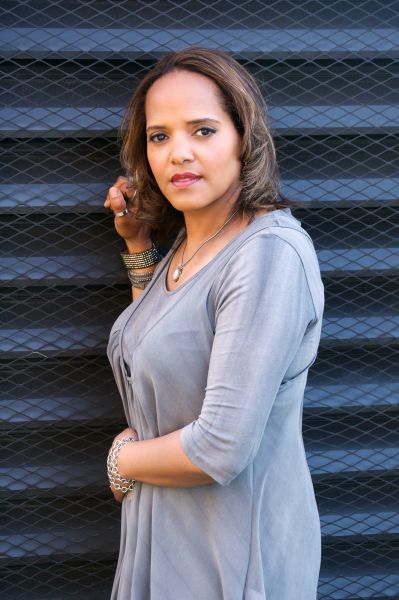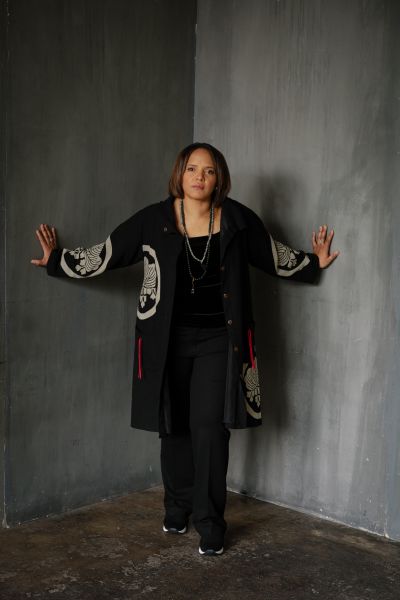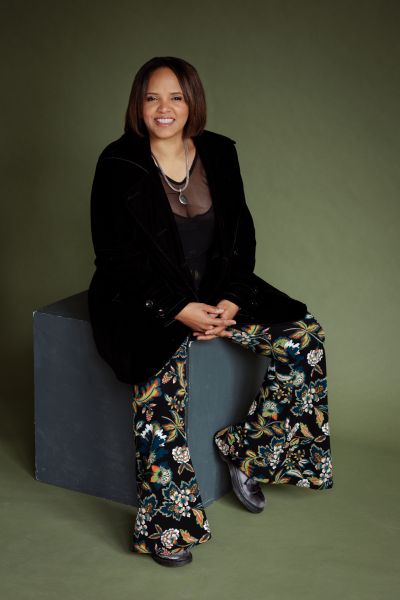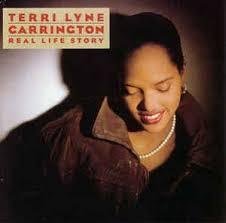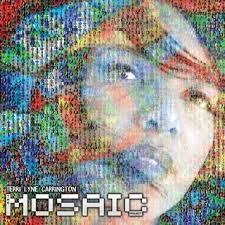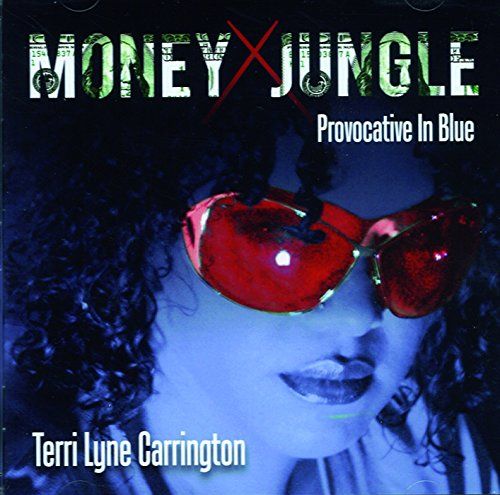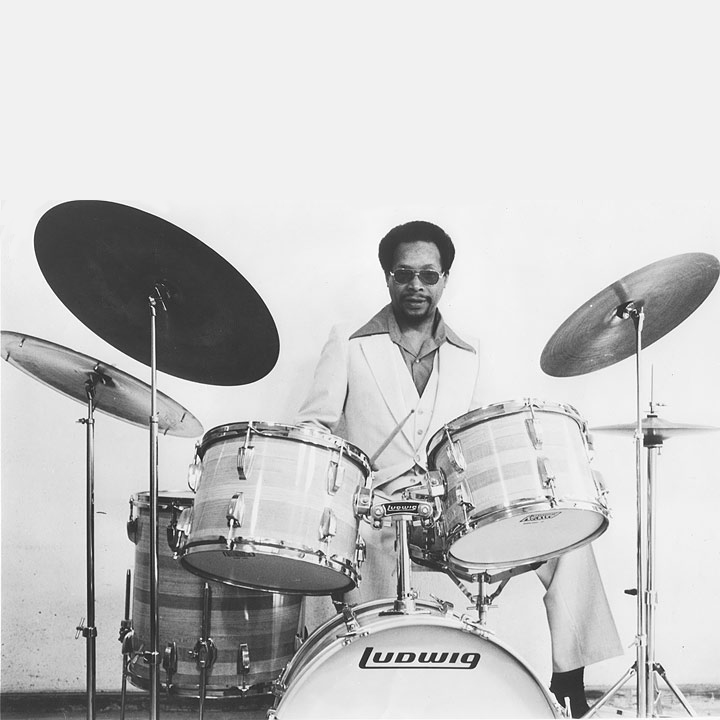Terri Lyne Carrington
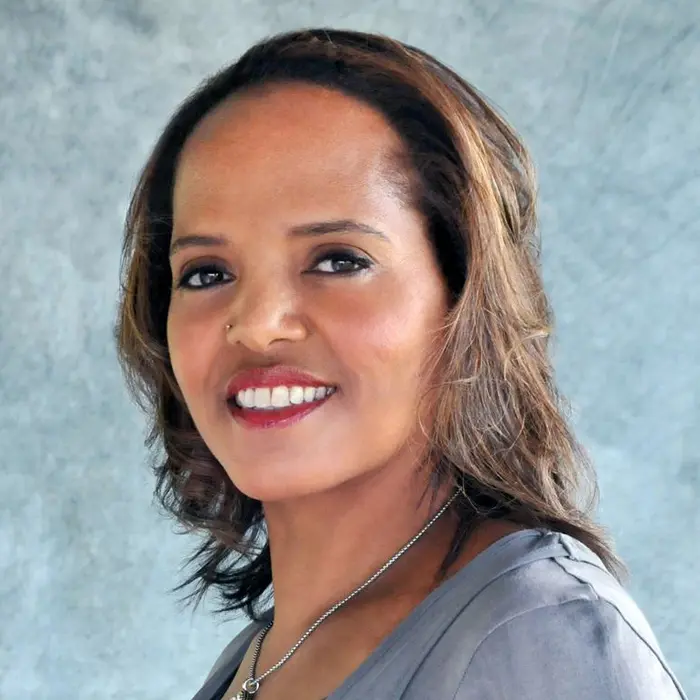
Three-time Grammy-winning drummer, producer, educator and activist Terri Lyne Carrington started her professional career in Massachusetts at age 10, when she became the youngest person ever to receive a union card in Boston. Just one year later, at age 11, she won a full scholarship to Berklee College of Music, where one of her teachers was Alan Dawson. And she’s spent the rest of her life recording and touring with a who’s who of jazz greats in addition to being a celebrated bandleader in her own right.
Musical beginnings, Move to New York City, Los Angeles
Born on August 4, 1965 in Medford, Massachusetts to an especially music family, Carrington’s father was a saxophonist and president of the Boston Jazz Society and her mother was an amateur pianist. When she was seven, she was given a set of drums that belonged to her grandfather, Matt Carrington, who’d played with Fats Waller and Chu Berry, among others. After taking private lessons for three years, she gave her first major performance at the Wichita Jazz Festival, backing trumpeter/flugelhornist Clark Terry.
In 1983, encouraged by living drum legend Jack DeJohnette, whom Carrington considers a mentor, she moved to New York City, where she worked closely with Lester Bowie, Stan Getz, James Moody, David Sanborn, Pharaoh Sanders and Cassandra Wilson, among others. In the late 1980s, she relocated to Los Angeles, becoming the house drummer for The Arsenio Hall Show and later for Quincy Jones’ late-night program VIBE.
Real Life Story, The Mosaic Project, Money Jungle, Love and Soul
In 1989, Carrington recorded her Grammy-nominated debut album on Verve Forecast, Real Life Story, and toured extensively with Wayne Shorter and Herbie Hancock, among others. In 2011, she cut the Grammy-winning LP The Mosaic Project, which featured a cast of all-star women instrumentalists and vocalists, and in 2013 she followed up with Money Jungle: Provocative in Blue, which won a Grammy for Best Jazz Instrumental Album, making her the first woman to win a Grammy in that category.
To date, Carrington has performed on well over 100 recordings and has been a positive role model and advocate for young people the world over through teaching and touring. She’s worked extensively with luminaries such as Al Jarreau, Woody Shaw, Clark Terry, Dianne Reeves, Yellowjackets, James Moody and Esperanza Spalding, among others, and her 2015 LP, The Mosaic Project: LOVE and SOUL, featured performances by iconic vocalists Chaka Khan, Natalie Cole and Nancy Wilson (of rock band Heart).
Berklee Professorship, Other Activities, Awards
In 2003, Carrington received an honorary doctorate from Berklee and she became a professor there in 2005. Currently, she serves as founder and artistic director of the Berklee Institute of Jazz and Gender Justice, which recruits, teaches, mentors and advocates for musicians seeking to study jazz with gender equity as a guiding principle, asking, “What would jazz sound like in a culture without patriarchy?” She also serves as the artistic director for Berklee’s Summer Jazz Workshop, co-curator for BAMS Fest and co-artistic director of The Carr Center in Detroit.
In 2019, Carrington was honored with the Doris Duke Artist Award, an acknowledgment of her past and ongoing contributions to jazz. In October 2020, she was named by the National Endowment for the Arts as one of four Jazz Masters for 2021, one of the nation’s highest honors in jazz.
Terri Lyne Carrington & Social Science, Activism
Her current band, Terri Lyne Carrington & Social Science, a collaboration with Aaron Parks and Matthew Stevens, recorded their debut album, Waiting Game, in 2019 and it was released in November that year by Motema Music. Galvanized by seismic changes in the ever-evolving social and political landscape, the album expresses an unflinching, inclusive and compassionate view of humanity’s breaks and bonds through an eclectic program melding jazz, R&B, indie rock, contemporary improvisation and hip-hop.
Both Waiting Game and the Berklee Institute of Jazz and Gender Justice point to Carrington’s drive to combine her musical passion with her profound regard for humanity. Waiting Game is not the first time that Carrington has addressed her concerns for society, though it is the most direct and impactful. The issues address on Waiting Game run the gamut of social concerns: mass incarceration, police brutality, homophobia, the genocide of indigenous Americans, political imprisonment and gender equity.
“In previous projects I’ve hinted at my concerns for the society and the community that I live in,” Carrington says. “But everything has been pointing in this direction. At some point you have to figure out your purpose in life. There are a lot of drummers deemed ‘great.’ For me, that’s not as important as the legacy you leave behind.”

